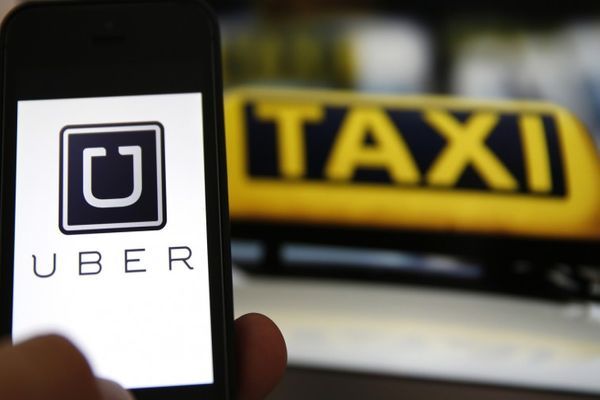By The Eagle Online
Copyright theeagleonline

In partnership with the Lagos State Ministry of Transport, Uber hosted the Lagos Road Mobility Summit to advance dialogue on safer, more inclusive transport.
Themed: “Reimagining an Inclusive Road Safety Strategy,” the summit brought together senior government officials, including representatives from the Lagos State Ministry of Transport, Federal Road Safety Corps, Lagos State Traffic Management Authority and the World Bank’s SSATP team, alongside regulators, global safety experts, and private sector leaders.
The event also marked the launch of Uber’s Nigeria Economic Impact Report, conducted by Public First, which revealed that Uber contributed an estimated ₦34 billion to Nigeria’s economy in 2023, with riders enjoying a consumer surplus valued at nearly ₦500 billion through time, cost, and convenience savings.
Beyond the figures, the report tells the story of everyday Nigerians – drivers who earn and gain flexibility to support their families, women who rely on Uber for safe journeys home, and communities benefitting from stronger tourism, nightlife, and local business growth.
Empowering drivers on their own terms
For thousands of Nigerians, Uber has become a lifeline for both income and independence. Drivers using the app earned ₦6.1 billion more in 2023, with average earnings sitting at 34% higher than their next best alternative. The report also found that flexibility, the freedom to decide when and how to work, carried an additional financial value of ₦6.3 billion. Almost nine in ten drivers (88%) said this flexibility helps them balance their family responsibilities.
Report reveals Uber’s N34b boost to Nigeria’s economy at Lagos Road Mobility Summit
Igwe Maduagwuna lauds Nweke over ‘The Village Priest’
Rainbow Book Club, NLNG spotlight Nigerian storytelling at 2025 Bookfest
Access Bank launches Womenpreneur Pitch-a-Ton 2025
Creative economy remains Nigeria’s next big thing — Minister
A driver in Abuja explained: “With Uber, I choose my hours. I can take my children to school, then drive during the day, and still be home in the evening. It gives me control over my life.”
“Uber is more than a way to move from A to B, it’s a platform that empowers people to shape their own futures,” said Deepesh Thomas, General Manager for Uber Sub-Saharan Africa. “From drivers who value the flexibility of earning on their own terms, to women who feel safer getting home at night, to local businesses reaching more customers, Uber is proud to be part of Nigeria’s growth story.”
Safer journeys for riders
Convenience and safety remain at the heart of why Nigerians choose Uber. The study revealed that 98% of riders cite convenience, 97% cite safety, and 96% cite comfort as key reasons for using the app. Women in particular feel the difference: 78% said Uber is the safest way for them to get home at night. And as nightlife grows, 79% of riders agreed that Uber helps reduce drunk driving by providing a safe and reliable way to travel after dark.
A young professional in Lagos summed it up: “If I’m working late, I know I can get home safely with Uber. My family can track my trip, and that peace of mind is priceless.”
Boosting nightlife, tourism, and local businesses
Uber’s impact is also felt in the communities it serves. In 2023, the platform generated nearly ₦930 million in value for the nighttime economy, ensuring more people can safely enjoy restaurants, concerts, and nightlife. Nigeria’s growing tourism industry benefitted too, with Uber adding ₦5.4 billion in value by helping visitors and locals explore destinations more easily.
And the gift of time cannot be overlooked. Riders saved more than 1.8 million hours last year – time that can be spent with family, building businesses, or simply enjoying life.
Reimagining inclusive road safety
The launch of the Nigeria Economic Impact Report was held alongside the Lagos Road Mobility Summit, hosted in partnership with the Lagos State Ministry of Transport.
Key voices included the Commissioner for Transport, Lagos State, represented by the Director of Transport Operation, Engr. Olasunkanmi Ojowuro; Lateef Ramoni from the Federal Road Safety Corps; and the Secretariat of the African Association of Road Safety Lead Agencies. International perspectives were also shared, with Marisela Ponce de Leon Valdes, Senior Transport Specialist and SSATP’s Road Safety Pillar Lead, presenting insights from the newly released Africa Road Safety Status Report 2025.
The summit featured a high-level panel discussion with transport leaders, including Olalekan Bakare-Oki (GM, LASTMA) represented by Jubril Oshodi (Director of Logistics & Transport, LASTMA), Efunlola Hughes (Head of Driver Operations, West Africa, Uber), Damilola Odunlade-Akeju (CEO, Drive Me NG), and Engr. Olasunkanmi Ojowuro. Also Director Public Transport and Commuter Services (PTCS), Ministry of Transport – Engr Olusoji Adebayo.
By convening policymakers, regulators, safety advocates, and industry operators under one roof, the summit underscored the importance of collaboration in tackling Nigeria’s road safety crisis and highlighted the role of technology-driven platforms like Uber in creating safer, smarter, and more inclusive transport systems.



